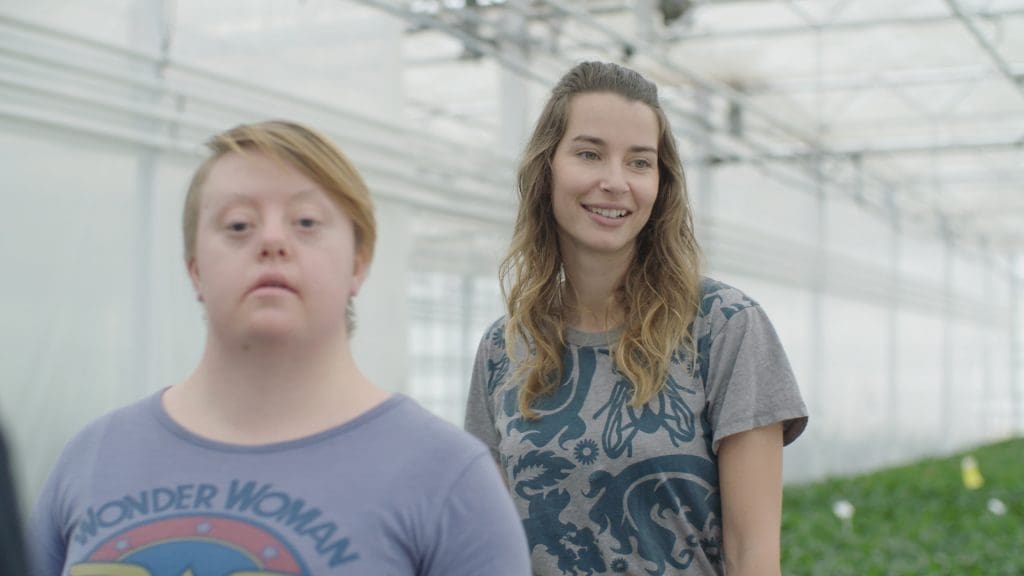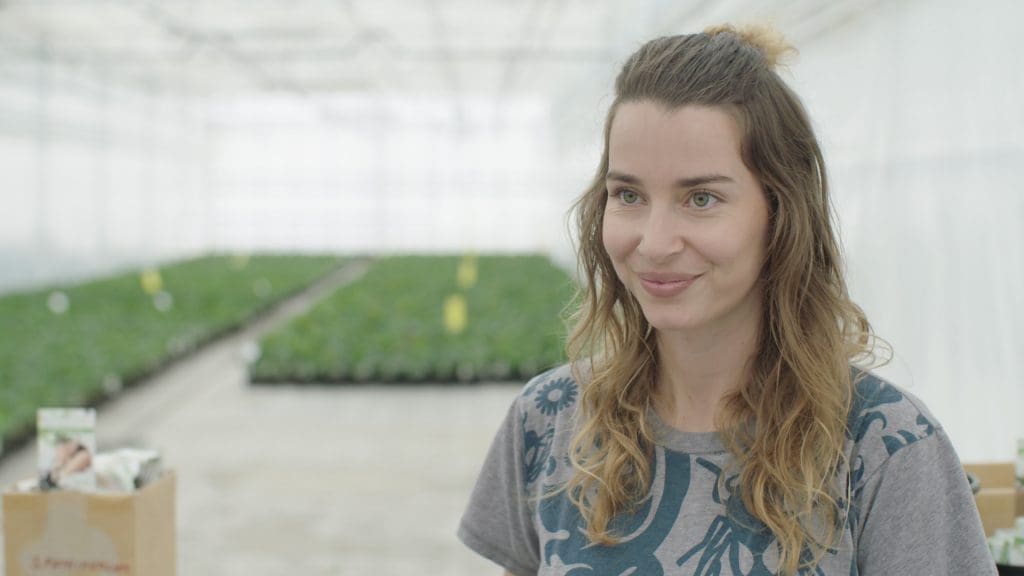When it comes to entering the workplace, young Kiwis with disabilities can face extra barriers for what is already a difficult time for many people in their early twenties. That’s why Sheridan Jackson launched Moxie, a programme that sets them up with work experience, and why she’s being put on the national stage for her efforts in shining a spotlight on thousands of talented Kiwis who just need a chance to prove themselves.
Leaping across the chasm from education to being employed is a pretty wide jump to make for all of us – getting a foot in the door can take months, if not years, and it can be pretty dispiriting for those entering the work force for the first time. For people living with disability, there can sometimes be an even wider gap to cross, which can mean there are huge numbers of untapped talent not being appreciated by employers. This is where programmes like Moxie come in. Moxie, which stands for Meaningful Opportunities Crossing Into Employment, was founded by Sheridan Jackson, who has been working in the disability sector for 11 years.
“I started working in the sector when I was 15, which is really young, but as I aged, I started making great connections with the young people I worked with and I became really passionate about New Zealanders who have disability, and seeing them lead meaningful lives,” Sheridan, 27, says. “I wanted them to have the same access to opportunity as their peers do. The longer I worked there, the more barriers I saw. I wanted to be a part of creating a bit of change with those barriers and also with society’s perceptions of the young people I was working with. I knew their strengths; I knew how awesome they were – and sometimes society didn’t see it that way.”

After finishing her degree, Sheridan started an internship with Recreate, a group who run recreational and educational programmes for people with disabilities. She saw the impact it could make with confidence levels and decided to stay on, eventually launching Moxie. “Originally it was to bridge the gap between school and employment by creating a work experience programme they could then put on their CV. The young people would learn lots of meaningful skills, build their confidence and become more work ready.” But, Sheridan says, it became apparent that building the gap between work experience and the employer was a bigger hurdle. “One of my colleagues did her Master’s thesis on the barriers for employment and a big one was self-advocacy – it was really hard for lots of our young people to advocate for themselves and to tell people what their strengths are. Because we know them so well, from our programmes, we were able to help create that relationship between them and the employer.”
The Moxie programme has two sides – an in-house programme, where young people work in the gardens and orchards set up by Recreate, and then working with employers for a 10-week work experience slot. This can often lead to job offers and even if it doesn’t, it’s still an invaluable opportunity for all involved. The young people she works with, Sheridan says, are incredible hard-working, capable and wonderful. They just need to be given a chance to show all of that – and to believe it in themselves, as well. “Lots of them come into the work experience with lots of hope,” she says. “But they don’t always know where to go or even to how to start with getting a job.”


Companies like Mummy’s Yummy, Downlights and Fresh Collective have all come on-board to offer work experience slots with Moxie and Sheridan says word of mouth is very powerful for the skills of their young people. “The more people that work with us, who have a positive experience, the more likely they’re going to recommend the programme to others. We are at the start of our journey but so far, so good.”
Having a sense of purpose and having a community to be a part of is key for mental health – something we have all learned over and over again with the effects of lockdowns and Covid-19 this. For young people with disabilities, there can be high levels of anxiety and also depression that couple with some disabilities. Moxie helps to keep them connected and motivated. “Having something you feel like you’re contributing towards is really important,” Sheridan says. “Otherwise some of our young people can become quite isolated, which we really don’t want. Even the social connections are so important in these programmes.”
2020 has provided challenges for Moxie – Zoom meetings were all that was possible in anything but Level 1 or 2 – but they have also seen a rise in engagement from the workforce. “People are buying more locally, supporting locally… maybe having more social awareness and social consciousness as well,” she says. “They’re also thinking about having a more inclusive workplace. And our young people are the most dedicated and loyal employees.”
That sense of hope that things can continue to get better is key, says Sheridan. “For me, the biggest thing I hope for is a world where everyone has equal opportunism and access to everything. I hope to be a small part of that change. I hope for our young people, that change is coming and they can be included – economically and socially – in New Zealand. It’s all about being given that first opportunity and once that happens, it all goes from there.”
For her work with Moxie, Sheridan has been nominated for the Attitude Awards, a black-tie gala event that celebrates the achievements of those people in the disability sector. After spending so many years working in the sector, Sheridan was well-aware of how important the awards are and she’s “privileged and overwhelmed” to be attending for the first time, as a nominee no less. “I feel so lucky to have the programme recognised – it’s not about me, it’s about the young people we work with. They’re so, so awesome and they just need someone to showcase that.”
The Attitude Awards take place in Auckland tomorrow night, December 2nd, and will also be broadcast in a one-hour special the following Sunday, 13th December, on TVNZ1.

